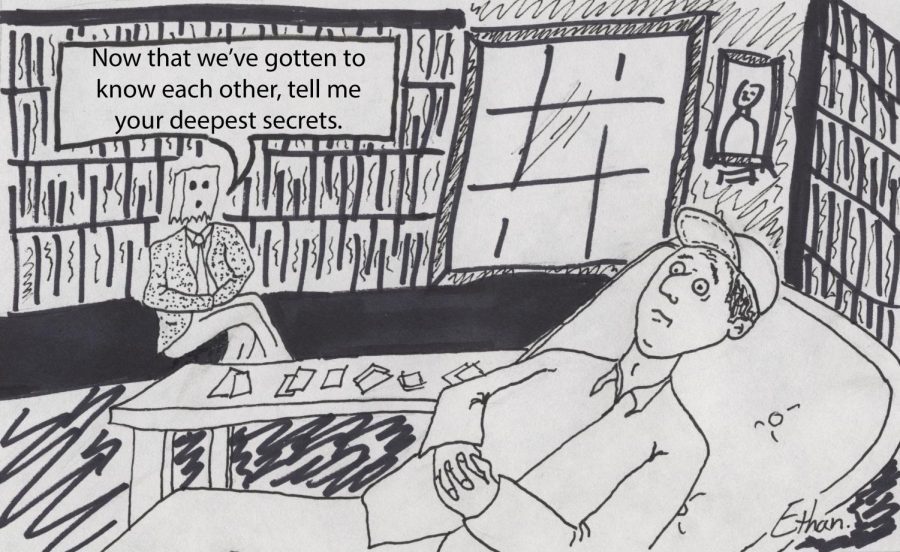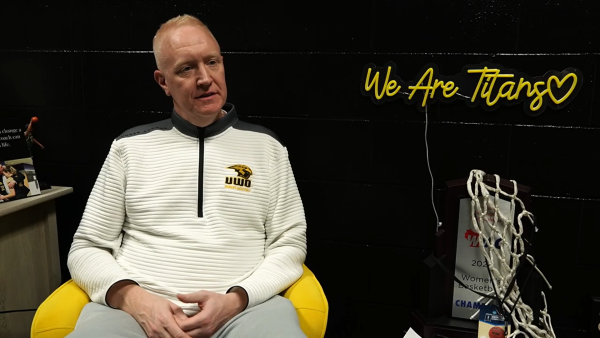Campus counseling services questioned
The UW Oshkosh Counseling Center offers free mental health services to students, but is it enough?
Several students have said mental health services are lacking on campus and UWO needs to take a more proactive approach to addressing students’ mental health needs.
However, the Counseling Center’s Outreach Coordinator Kris Campbell said that the Counseling Center offers a variety of mental health services that are available for students to utilize and that mental health is a nationwide crises, not just a crisis at UWO.
The center offers individual counseling, therapy groups, wellness workshops, substance use services, student success coaching, bystander intervention training and more.
Multimedia journalism major Leo Costello said that he attended both individual and group therapy at the Counseling Center and found the individual therapy more helpful.
“I tried the group therapy, but it wasn’t for me,” he said. “It felt like a waste of time, more of like a camp experience.”
However, Campbell said group therapy can help students understand they are not alone with the issues they deal with.
“A lot of the issues our clients deal with are issues that all humans deal with to one degree or another,” she said. “I think it’s more powerful hearing ideas and experiences from their peers than from older adults.”
The center offers many different types of therapy groups that meet weekly and serve different needs, Campbell said.
Group therapy allows students to relate more with other students, she said. “It’s a support that they can count on each week at the same time, the same day. Students engage in experiences together and practice skills together so they really feel a deeper sense of connection with others. That’s very beneficial.”
Campbell said the center also offers two wellness workshops each day.
“We also have a couple of relaxation rooms that they can use to practice mindfulness skills, relaxation and ways to regulate their emotions,” she said. “We have two different biofeedback programs so they can utilize biofeedback. We also have animal-assisted therapy and restorative yoga is offered once a week.”
Campbell said the center also offers meaningful experience retreats that take place for different issues such as grief and anxiety.
“We also have student success coaching, which is a service that can help students improve how they do academically,” she said. In addition, the center offers alcohol and other drug abuse programs, often used by students who have been sanctioned for a substance abuse issue.
The center employs 10 counselors, three interns working on their master’s degree in counseling and two practicum students.
Costello said that when he visited the center he didn’t always see the same counselor.
“There were a couple times where the person who was helping me left,” he said, noting that it is inconvenient and time consuming to restart with a new counselor.
Campbell said that of the 10 permanent counselors, there are a couple who have contracts with the University for less than a year. In addition, interns have to re-apply to work at the Counseling Center each semester.
UWO communications major Rachel Ryan said she has not visited the Counseling Center but she thought that switching counselors each semester could be frustrating to students.
“You get comfortable with people and you want to keep talking to them and then you have to start over with someone new,” she said. “It would be hard to break that barrier and feel comfortable.”
UWO biology major Atlantis Moser said she knew UWO has a Counseling Center, although she has never used any of the Counseling Center’s services. She said she believes students who are receiving counseling would much rather have the same counselor each semester.
“Why would I come back if I had to start all over again?” Moser questioned.
Ryan said she believes that UWO could do more to address students’ mental health issues. “Mental health is definitely a problem on campus.”
Campbell acknowledged that mental health is a problem on campus and nationwide.
“Mental health problems seem to be increasing and the need for services is definitely increasing, but I do think more people are readily accessing services when they are having problems, which is a positive,” Campbell said. “But there is no doubt that there has been more utilization of mental health services, and it seems that more people are having struggles in the area of mental health.”
Ryan said she believes that not enough students are aware of the Counseling Center.
“I know that there is a Counseling Center, but no one talks about it,” she said. “It’s basically buried.”
Costello said he learned about the Counseling Center from his parents and he thinks that professors should make students aware of the Counseling Center and the services offered.
“Just having a professor tell a student that the counseling services are available is a really powerful thing because it’s the professor letting the student know that they are aware of their struggles,” Costello said. “A professor reaching out can mean a lot.”
Moser said the center needs to advertise more.
“They could hold special events or send out emails,” she said. “If you don’t know the Counseling Center is there, how can you use the services?”
Campbell said that the center currently advertises in a variety of ways including emails, CampusVision slides and presentations for classrooms and other groups.
“We are out at tabling events dispersing information about ways we can all improve our mental health. We have posters and banners across campus,” she said. “You can also find that on our Instagram and Facebook accounts we have launched another campaign that is targeted at anxiety, which is the top issue that our students struggle with.”
Campbell said students can call or stop in to schedule an appointment and most intake appointments are scheduled within a week or two.
“We go through some triage questions with students to determine when best to schedule them and how urgent the issues are that need to be addressed,” she says. “The assessment is to determine what the goals and needs are, and then a treatment plan is developed on how to best address those issues to achieve their goals.”
Campbell said if a student is struggling, it is important that they seek help from supportive people in their lives who can help them on their journey. “But the Counseling Center is a great place to start.”
The Center helps a lot of students on limited resources. So if you’re stressed, feeling anxious or struggling with depression, reach out and ask for help. You won’t be alone.








